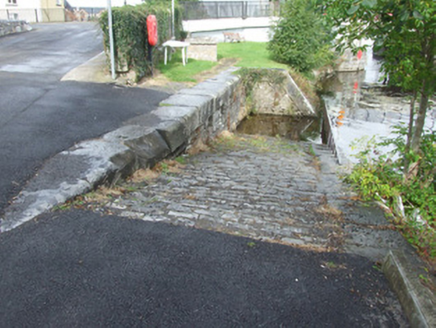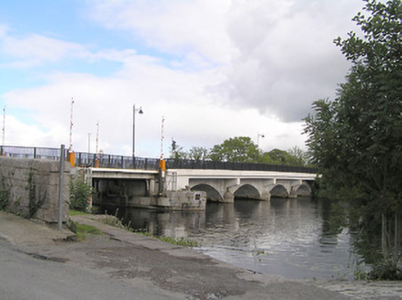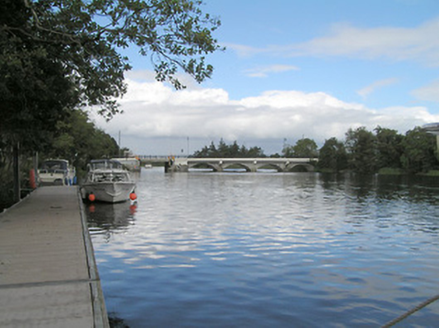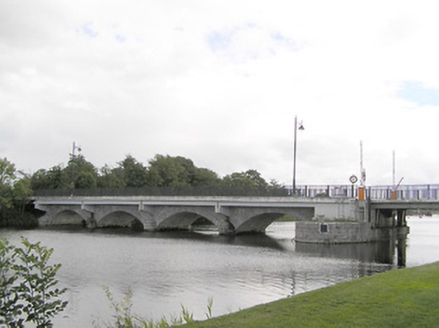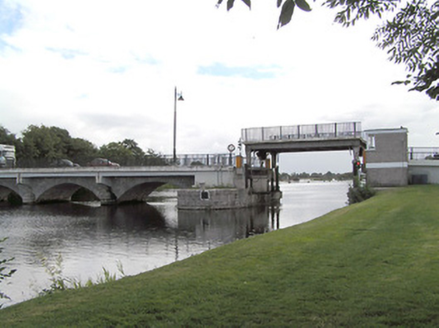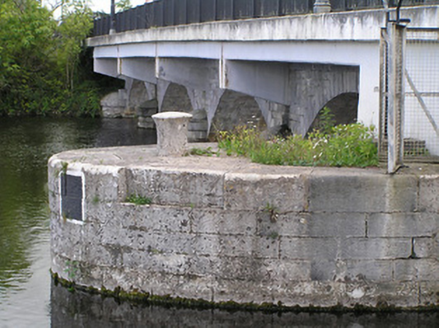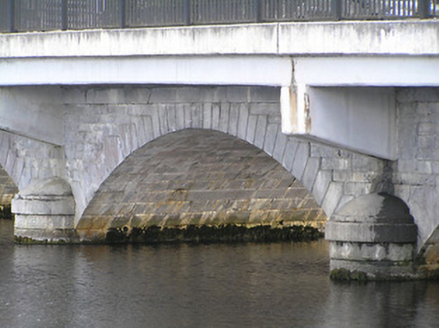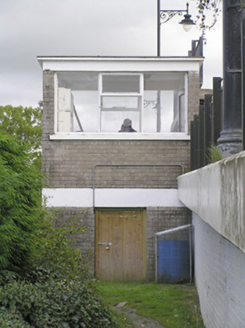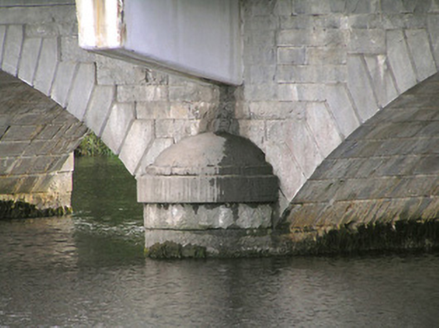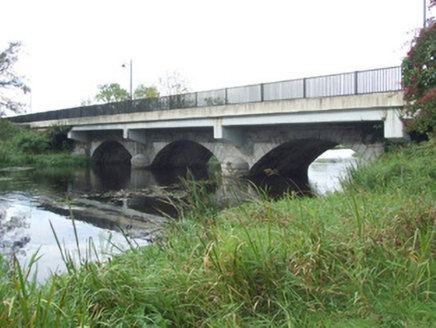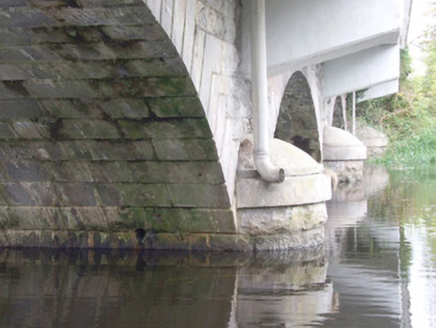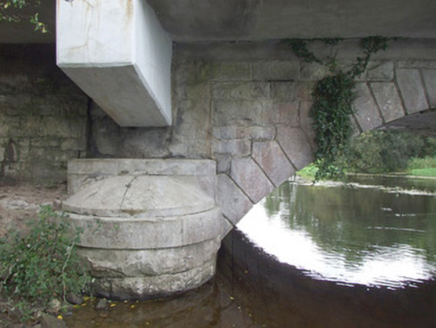Survey Data
Reg No
13401301
Rating
Regional
Categories of Special Interest
Architectural, Artistic, Technical
Original Use
Bridge
In Use As
Bridge
Date
1830 - 1850
Coordinates
205531, 276926
Date Recorded
24/08/2005
Date Updated
--/--/--
Description
Multiple-arch road bridge over River Shannon, built c. 1845 and altered c. 1975 and c. 1993, over central island with three arches to east end and four to west end. Original metal swivel section to the west end replaced c. 1975 by concrete and steel lifting span on concrete and steel piers. Original parapets removed and road/footpaths widened with cantilevered reinforced concrete sections/decks to either side (north and south) having metal railings/parapets, c. 1993. Original bridge constructed of roughly dressed ashlar limestone. Segmental-headed arches having ashlar limestone voussoirs with V-profile edges. V-jointed ashlar limestone masonry to arch barrels. Rusticated ashlar limestone piers with rounded/U-shaped cutwaters to upstream and downstream elevations (north and south) having rounded ashlar limestone capstones over. Squared rubble limestone abutment with ashlar limestone coping to west end of bridge, and cobbled slipway to southwest corner. Rubble stone wing wall to the southwest end having rounded dressed ashlar limestone coping over. Single-bay two-storey control tower with flat roof adjacent to modern lifting section (west). Located to the northwest of Cloondara, joining County Longford with County Roscommon. Spans border between Leinster and Connaught.
Appraisal
Despite extensive recent alterations, this fine bridge represents a significant mid-nineteenth century engineering achievement and is an important element of the built heritage of Longford. It is well built using high quality ashlar limestone masonry, while the graceful profile of the arches identifies the civil engineering heritage significance of the site. The skilled craftsmanship involved in cutting and carving stone to provide channelled rustication and convex U-cutwaters is evident. The rounded/U-shaped cutwaters are typical of the many bridges built across the River Shannon by the Shannon Navigation Commissioners during the mid-nineteenth century. It was probably built to designs by Thomas Rhodes (1789 – 1868), the chief engineer with the Shannon Navigation Commissioners at the time of construction and the engineer responsible for a number of elegant bridges over the Shannon (including Lanesborough Bridge 13310001). This bridge at Termonbarry formerly had a metal swivel section to the west end, which was built to allow for the passage of river traffic along the Shannon Navigation. It was later replaced by a fixed span, c. 1975. The present bridge at Termonbarry replaced an earlier multi-span masonry bridge at this site. The marriage between traditional bridge building techniques and twentieth-century technology create an interesting structural form. Modern technology such as reinforced concrete and hydraulics create the lifting section of the bridge, which is a notable example of modern engineering. This altered but elegant bridge is a pleasing landmark feature in the landscape to the northwest of Cloondara, and is an integral element of the extensive transport heritage of County Longford.
